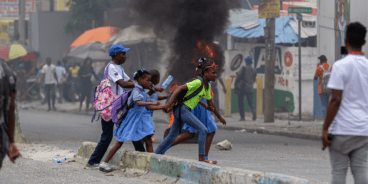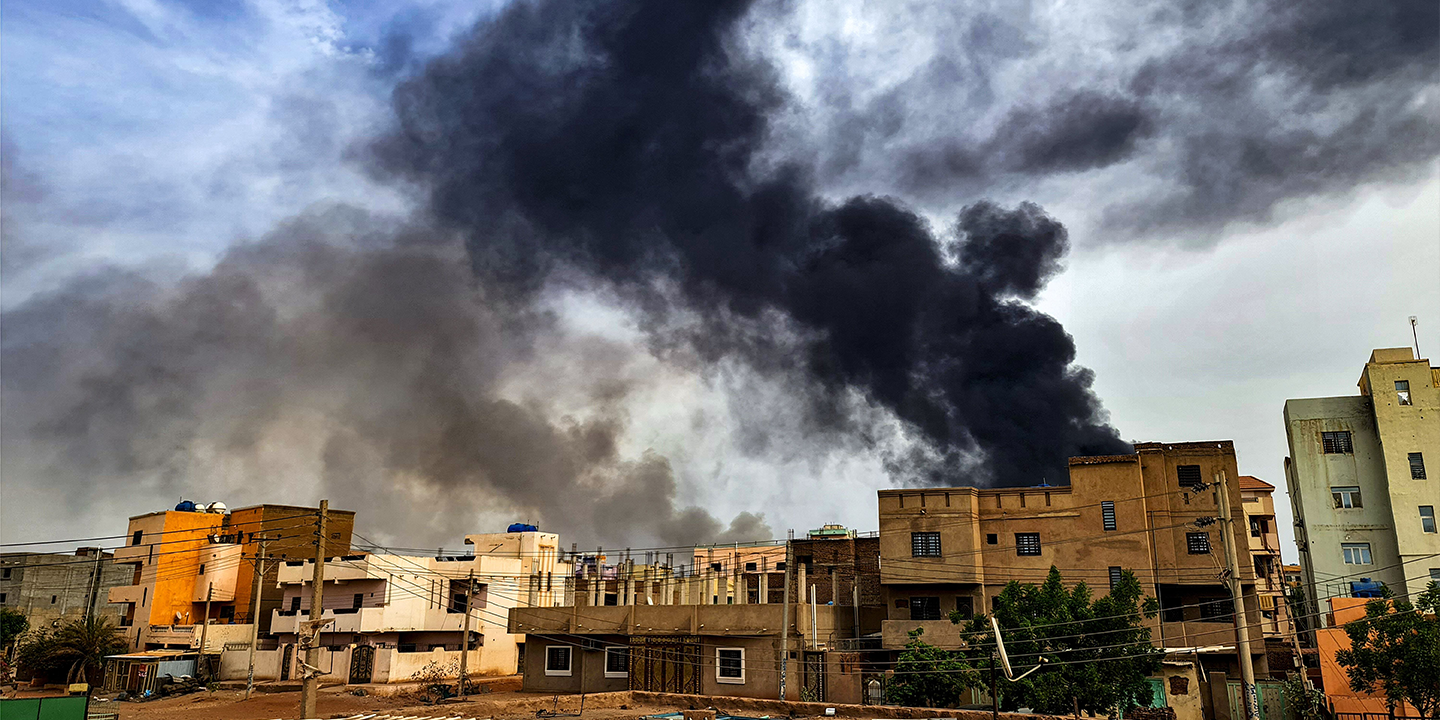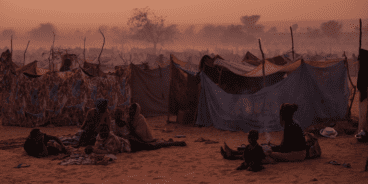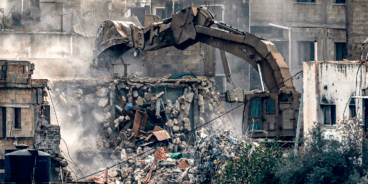

Atrocity Alert No. 390: Sudan, Myanmar (Burma) and the UN Human Rights Council
Atrocity Alert is a weekly publication by the Global Centre for the Responsibility to Protect highlighting situations where populations are at risk of, or are enduring, mass atrocity crimes.
ATROCITIES ACROSS SUDAN CONTINUE AS FIRST ANNIVERSARY LOOMS
Violence and atrocities continue unabated in Sudan as the conflict between the Sudanese Armed Forces (SAF) and the Rapid Support Forces (RSF) approaches its first anniversary on 15 April. In their fight to preserve and expand control, both the SAF and RSF have perpetrated indiscriminate and deliberate attacks against civilians and civilian objects – often with rocket shells, bombardments and heavy artillery – that amount to war crimes and crimes against humanity. Most recently, on 6 April at least 28 people were killed and more than 240 injured after the RSF attacked the town of Um Adam, south of Khartoum. In the past year reports have also surfaced of the brutal and widespread use of sexual violence, including rape, sexual assault, exploitation and sexual slavery.
Amid the current conflict, civilians in Darfur, particularly those from non-Arab communities, remain at risk of ethnic cleansing and genocide as a result of a systematic campaign and large-scale attacks launched by the RSF and allied Arab militias. Dozens of cities, towns and villages have been fully or partially destroyed across Darfur. Since 4 April the RSF and allied militias have launched a series of attacks on several villages west of El Fasher, North Darfur, killing at least 15 civilians.
Prior to these recent attacks, the recently appointed United States Special Envoy for Sudan, Tom Perriello, warned against a potential offensive on El Fasher and stated on X (formerly known as Twitter) that “any offensive on El Fasher would be disastrous for Darfur’s civilian[s] and pour fuel on the fires burning in Sudan. Reports of RSF blocking humanitarian aid trucks to El Fasher and preventing civilian movements only add to the suffering of the Sudanese people.”
Access to food, medical care and other essential services has been severely disrupted and restricted while targeted attacks and the looting of humanitarian supplies have left civilians without access to life-saving support. Nearly 25 million people urgently need humanitarian assistance and, according to the UN Office for the Coordination of Humanitarian Affairs, nearly 5 million people are at risk of “catastrophic” hunger in the coming months. Conflict has displaced more than 8.5 million people inside and outside of Sudan.
As the first anniversary of the conflict approaches, the international community must urgently act to prevent further atrocities and ensure the protection of civilians. Member states should use their leverage to ensure that the SAF and RSF agree to a permanent cessation of hostilities and ensure adherence to international humanitarian and human rights law by all forces under their command. International donors must utilize more innovative ways of delivering aid to vulnerable populations, including by supporting civilian-run Resistance Committees and neighborhood communities and disbursing cash grants.
UN SECURITY COUNCIL MEETS ON MYANMAR AS CONFLICT AND CIVILIAN CASUALTIES ESCALATE
Clashes are escalating across Myanmar (Burma), putting civilians at heightened risk. In an update posted on 5 April, the UN Office for the Coordination of Humanitarian Affairs (OCHA) noted that in the first quarter of the year the fighting – marked by the use of heavy weapons and aerial bombardments targeting civilian areas – has particularly escalated in Rakhine and Kachin states, Sagaing region and in areas in the Southeast. In recent months, hundreds of civilians have been killed and injured and there has been a new surge in displacement.
Various armed actors have increasingly used landmines and other explosive ordnance as the clashes intensify and spread. The UN Children’s Fund (UNICEF) recently reported that nearly all states and regions in the country – apart from the capital Naypyitaw – are now contaminated by landmines, making Myanmar one of the most heavily contaminated countries in the world. UNICEF documented a three-fold increase in landmine and explosive ordnance-related casualties in 2023, with 1,052 verified civilian casualties, over 20 percent of whom were children. The use of landmines is prohibited under international conventions and may amount to war crimes.
Meanwhile, the junta has imposed mandatory conscription on populations across the country, forcing civilians to join the ranks of the military that has committed likely war crimes, crimes against humanity and – in the case of the ethnic Rohingya Muslim minority population – genocide and ethnic cleansing against them. According to Human Rights Watch, the military has abducted and forcibly recruited more than 1,000 Rohingya men and boys from across Rakhine State since February.
In light of the deteriorating situation in the country, on 4 April the UN Security Council held an open briefing on the situation, the first of its kind since 2019. During the meeting, OCHA’s Director of Financing and Partnerships Division, Lisa Doughten, said, “As the conflict continues to escalate, as humanitarian needs intensify…time is of essence for the people of Myanmar. They cannot afford for us to forget. They cannot afford to wait. They need the support of the international community now to help them survive in this time of fear and turmoil.” Following the briefing, the UN Secretary-General announced the appointment of Julie Bishop, former foreign minister of Australia, as his Special Envoy on Myanmar – a post that remained vacant since July 2023.
While both the Security Council briefing and the appointment of the Secretary-General’s Special Envoy are welcome developments, much more needs to be done to address the crises in Myanmar. The international community must make a collective, concerted effort to end the supply of the aviation fuel, finances and legitimacy the junta needs to continue committing atrocities against millions of civilians.
OUTCOMES OF THE 55TH SESSION OF THE UN HUMAN RIGHTS COUNCIL ON ATROCITY CRISES
On Friday, 5 April, the UN Human Rights Council (HRC) ended its 55th session in Geneva. The session, which started on 26 February, is considered the longest HRC session in its history and provided an important opportunity for member states to address and respond to situations where populations are at risk of, or are experiencing, atrocity crimes.
Notably, 10 years since the release of the landmark report of the HRC-mandated Commission of Inquiry (CoI) on the Democratic People’s Republic of Korea, the HRC requested the High Commissioner for Human Rights to submit a comprehensive update to the 2014 CoI report. This update will be vital to shedding light on ongoing crimes against humanity committed under the leadership of Kim Jong Un. UN member states also renewed the mandate of the Commission on Human Rights in South Sudan, which is critical for continued monitoring and reporting on atrocity risks, particularly ahead of the anticipated elections this year. The investigative bodies for Iran, the Syrian Arab Republic and Ukraine were also renewed and will continue to report publicly on how to ensure accountability and prevent recurrence of atrocity crimes.
On 5 April the HRC also adopted a resolution on the human rights situation in the Occupied Palestinian Territory, including East Jerusalem, which demanded that Israel immediately lift its blockade on the Gaza Strip and cease all other forms of collective punishment, as well as called for an immediate ceasefire. The resolution also called upon all states to cease the sale, transfer and diversion of arms, munitions and other military equipment to Israel.
The UN High Commissioner for Human Rights and the Special Rapporteur on the situation of human rights in Belarus previously warned of the commission of possible crimes against humanity in the country. In response, UN member states renewed the mandate of the Special Rapporteur and established a group of three independent human rights experts to investigate facts, circumstance and root causes of violations and abuses in Belarus. Over the past six weeks, delegations also discussed atrocity risks in Afghanistan, the Central African Republic, Eritrea, Mali, Myanmar (Burma), Nicaragua, Sudan and Venezuela.
During this session, the Group of Friends of the Responsibility to Protect delivered two joint statements highlighting the linkages between atrocity prevention and the rights to freedom of peaceful assembly and of association, as well as on the need for a better understanding of climate-related atrocity risks.
As highlighted in a consensus resolution on the Prevention of Genocide during this session, the UN human rights system plays a key role in atrocity prevention efforts. It is vital that member states act upon the recommendations issued by the wider UN human rights system to better prevent and respond to the commission of atrocity crimes and hold those responsible to account.
Related Content


Twenty years of the Responsibility to Protect and the unfulfilled promise in Darfur
